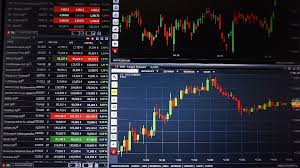
Is Forex Trading Gambling? Understanding the Fine Line
Forex trading has become increasingly popular over the years, attracting a wide array of investors ranging from seasoned professionals to novices eager to make a quick buck. But the crux of the matter remains: is Forex trading simply a sophisticated form of gambling? To understand this debate, we need to delve deeper into the nature of Forex trading, the psychological aspects involved, and the indices of risk management. Moreover, it’s essential to consider resources such as is forex trading gambling Trading Platform PH which provides tools for Forex trading enthusiasts.
The Basics of Forex Trading
Forex, or foreign exchange, is a decentralized global marketplace where currencies are traded. The objective is to exchange one currency for another with the expectation that the price will change in favor of the trader. Unlike stock trading, Forex operates 24 hours a day, five days a week, allowing great flexibility in trading hours. The market is influenced by various factors, such as economic data, political events, and market sentiment.
What Constitutes Gambling?
Gambling is generally defined as playing games of chance for the purpose of winning money or material goods. This typically involves betting on unpredictable outcomes, where the odds are often stacked against the player. In traditional gambling activities, such as casino games, the house edge ensures that the casino profits in the long run.
Forex Trading vs. Gambling: The Similarities
There’s a noticeable overlap between Forex trading and gambling, particularly in their inherent risks and potential for significant financial loss. Both activities require a certain degree of risk tolerance and can be driven by emotional decision-making. For example, impulsive trading based on emotion rather than analysis can lead to disastrous financial consequences. Furthermore, both arenas can draw in individuals seeking excitement, which sometimes clouds their judgment.
The Role of Leverage

Leverage is a powerful tool in Forex trading that allows traders to control larger positions with a smaller amount of capital. However, while having the potential for greater returns, leverage also amplifies losses. This can lead to a gamble-like scenario where traders might take excessive risks hoping for massive gains, only to suffer severe setbacks. Such practices can blur the lines between calculated trading and reckless gambling.
Risk Management in Forex Trading
Effective risk management strategies are vital for long-term success in Forex trading. Unlike traditional forms of gambling where outcomes may feel random, Forex trading can be analyzed through various methods—fundamental and technical analysis being the two main approaches. With strong risk management, traders can set stop-loss orders, diversify their portfolio, and allocate capital judiciously to minimize losses. These strategies are often in direct contrast to the mindset prevalent in gambling, where players may chase losses, leading to further risk.
The Psychological Aspect
Psychology plays a pivotal role in both Forex trading and gambling. Cognitive biases such as overconfidence, loss aversion, and the gambler’s fallacy can significantly impact a trader’s decisions. When traders start to let emotions dictate their trades, the situation can quickly deteriorate into a gambling mindset. Recognizing these psychological traps is critical for traders who want to maintain a disciplined and analytical approach to trading.
Market Dynamics
Forex trading is influenced by economic indicators, geopolitical events, and central bank decisions. Understanding these dynamics can help traders make educated decisions based on empirical data rather than chance. This level of analysis differentiates Forex trading from gambling, where the outcomes may feel random and less predictable. Traders can use factors such as interest rates and inflation data to guide their strategies, lending legitimacy to their actions compared to a roll of the dice in a casino.
The Regulatory Framework
Forex trading operates under a framework of regulations designed to protect investors. Regulated brokers must adhere to strict guidelines, which include the responsibility to maintain client funds and transparency in transactions. In many countries, Forex trading is viewed as a legitimate financial market activity, which contrasts with gambling’s often less regulated environment, where the potential for fraud and exploitation can be higher. This regulatory distinction further reinforces the idea that Forex trading possesses a level of professionalism and accountability that is not typically associated with gambling.
Conclusion: A Personal Perspective
In conclusion, while Forex trading may share similarities with gambling, such as the potential for financial losses and the psychological pressures involved, it is a more nuanced and analytical approach to investing. With proper education, risk management, and a disciplined mindset, trading forex can be a valuable financial endeavor rather than a mere gamble. Ultimately, the lines between Forex trading and gambling are drawn more distinctly based on the strategies employed, the level of education about market dynamics, and the approach to risk. For individuals considering venturing into the Forex market, awareness of these factors could be the difference between becoming a successful trader or falling into the traps of gambling.

Recent Comments